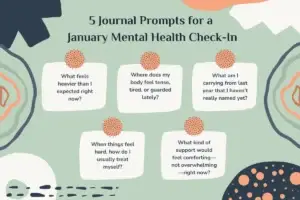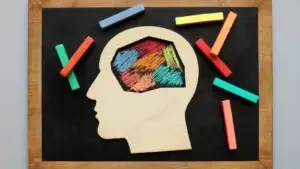If you have a loved one who is experiencing depression, it can be difficult to know how to best support them. Depression is a serious medical condition that can have a profound impact on every area of a person’s life. Depression can make people feel isolated, hopeless, and worthless, and it can be hard to see your loved one suffering. It can cause problems with work, relationships, and self-esteem, and can even lead to thoughts of suicide. However, there are things you can do to help.
Firstly, it’s important to educate yourself about depression. Understand the symptoms and how they can manifest. This will help you to better recognize when your loved one is struggling and give you a better idea of how to best support them.
Symptoms and behaviors of depression:
- Feeling sad or down most of the time
- Loss of interest or pleasure in activities that used to be enjoyable
- Significant weight loss or gain, or changes in appetite
- Sleeping too much or not being able to sleep
- Slowed thinking, speaking, or body movements
- Fatigue or loss of energy
- Feelings of worthlessness or guilt
- Trouble concentrating or making decisions
- Thoughts of death or suicide
If you notice your loved one exhibiting any of these symptoms, it’s important to talk to them about it. Let them know that you’re there for them and want to help.
Here are 5 tips from a therapist on how to support a loved one who is experiencing depression:
1. Be there for them.
-
- One of the most important things you can do is to be there for your loved one. Depression can be an isolating experience and just the feeling of knowing that someone is there for them, ready to provide a shoulder to lean on, can provide immeasurable comfort. Make an effort to listen to them when they talk, and reassure them that you’re not going anywhere, even if things get tough. Make it clear that you care for them and they’re not a burden on you.
2. Help them get professional help.
-
- Help them get professional help. If the person agrees, help them take the steps to get this help. Offer to assist in finding the right professional. This can include helping to research different therapists, looking at their reviews, insurance considerations, and specialties. Encourage them to also consult with their regular doctor, who may be able to prescribe medication or refer them to a specialist.
3. Help them take care of themselves.
-
- Depression often causes a lack of energy and motivation. Things like eating right, doing household chores, or even showering may seem overwhelming to them. Offer to assist with tasks like grocery shopping, meal prep, and cleaning. Encourage them to get regular sleep, have nutritious meals, and to get physical activity as these can significantly improve the symptoms of depression. However, it’s important not to be pushy or demanding, since they might already feel pressure or guilt due to their illness.
4. Be patient.
-
- Depression can be a long and difficult road, so it is important to be patient with your loved one. Depression doesn’t disappear overnight; recovery often involves ups and downs. There might be days when your loved one might seem to be doing well, and then there might be periods of intense depression again. It is crucial to remain patient through these oscillations and let them know that it’s okay and perfectly normal to have bad days and setbacks in recovery. Reiterate that you’re there for them no matter what.
5. Take care of yourself.
-
- It’s crucial that while taking care of someone else, you don’t neglect your own wellbeing. The strain of caring for someone with depression can affect both your physical and emotional health. Make sure to rest adequately, maintain a balanced diet, and engage in regular physical exercise to keep stress at bay. Have your own support system in place. Seek support from friends, family, or join a support group if you need to. You can only take care of others when you’re at your best. So don’t hesitate to seek help when you need it.

If you are struggling to support your loved one, don’t be afraid to seek help from a professional. You can also reach out to support groups for loved ones of people with depression. Counseling can be an effective way to provide support and guidance to you during this difficult time. A trained counselor can help you understand more about depression and learn coping mechanisms for dealing with the changes that have occurred due to your loved ones depression. In addition, counseling can provide a safe space for exploring difficult emotions and working through relationship issues. If your loved one is struggling with depression, don’t hesitate to seek out counseling services for yourself. Remember, you are not alone.
Begin Working With A New Bern Therapist
Seeing a loved one struggle with depression can be difficult Our team of caring therapists are here to help you talk through how to support your loved one and take care of yourself. We are happy to offer support from our NC-based practice with online services available across the state. You can start your therapy journey with Renewed Wellness Counseling by following these simple steps:
- Complete our consult form
- Meet with a caring therapist
- Start experiencing more confidence and positive thoughts!
Other Therapy Services Offered With Renewed Wellness Counseling
Our team understands that you may have more than one mental health concern, which is why we are happy to offer multiple mental health services. Our therapists specialize in therapy for military families, chronic illness counseling, stress and anxiety counseling, and addiction counseling. We also offer life transition counseling and trauma therapy. Let’s work together to get you to a good place!








